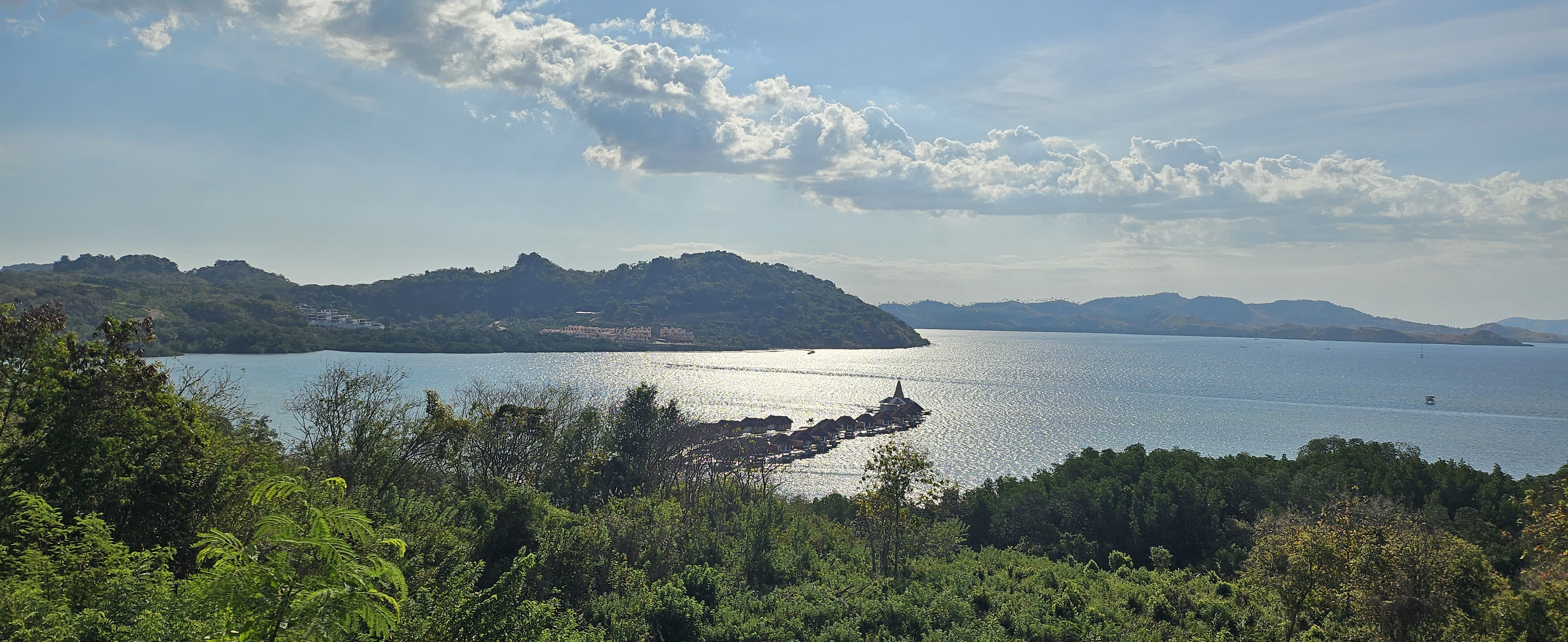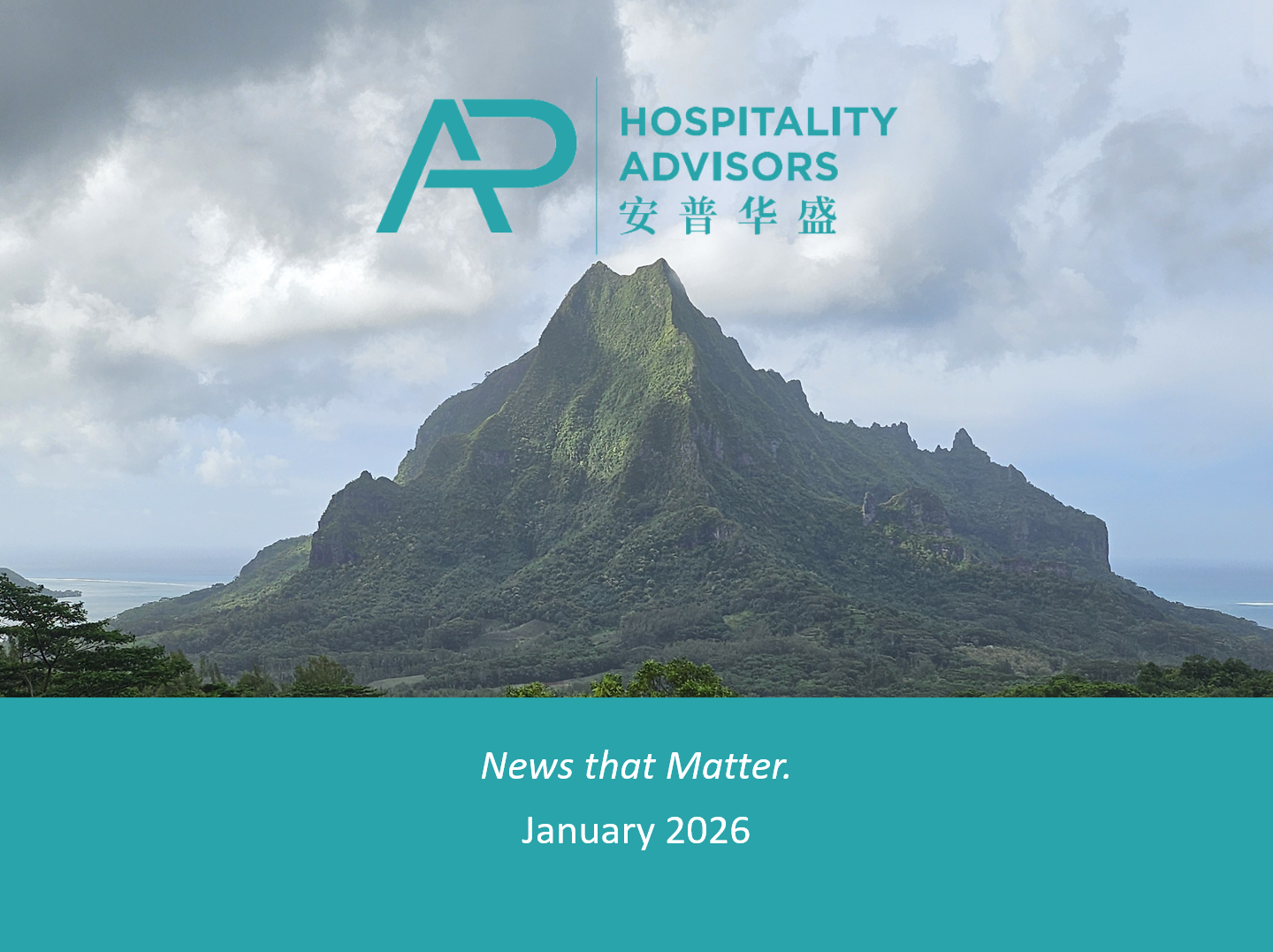AP Hospitality Bulletin Asia Pacific - July 2024

New AP Article Isles of the Dragon – Labuan Bajo Market Update is now available! The article provides an overview of the tourism and hospitality market in Labuan Bajo, which is the gateway to Komodo National Park. The destination features great development potential, with pristine natural resources. The full report can be accessed here.
Deals that matter.
Hyatt recently acquired the “Me and All” Hotels brand from Germany-based Linder Hotels, boosting the total number of brands to 29. While the deal brings approximately1,000+ existing rooms across Germany and 1,000 additional rooms in the pipeline, the acquisition would help Hyatt expand its lifestyle brands and increase brand awareness in Germany.
Hyatt is reportedly also in talks to acquire Standard International, a lifestyle brand with about 20 hotels under four brands: The Standard, The StandardX, Bunkhouse, and The Peri Hotel. While Hyatt is smaller than its competitors, it has shown great ambition to develop its lifestyle segment.
Transactions that matter.
1. Urbanwood Hung Hom, Hong Kong SAR
- The Hong Kong Metropolitan University (HKMU)acquired a 255-key Urbanwood Hotel from the Law family for HK$1 billion ($128million), or $501,960 per key, according to the market source. The property will be renamed MU88 and used as accommodation for non-local students in the coming semester. HKMU expects the property will be able to house about 480 persons when it commences operation in August.
- In response to the increasing number of non-local students, HKMU actively looks for hospitality assets in the neighbourhood to acquire and repurpose as student accommodation. In July, HKMU is reported to be in discussion with the Tang family to acquire the 160-key Hotel Ease – Tsuen Wan. However, the deal seems to have fallen through in the end.
- Located in the city with the most expensive house prices, universities in Hong Kong were faced with shortages in student accommodation in the past few years. HKMU, formally known as Open University, has little experience in hosting a great number of non-local students, particularly from mainland China. The number of students from the mainland recorded 14% year-on-year growth between 2021/22 and2022/23. While the government established funds to support new construction projects, the shortage of student housing has created opportunities for investors.
2. Japan Hotel REIT Acquisition, Okinawa and Tokyo, Japan
- Japan Hotel REIT (JHR) acquired a total of four hotel assets in the past month, including two resorts in Okinawa and two hotels in Tokyo, for a total of JPY 56.2 billion ($350 million). JHR has been actively adding hotels across Japan, including the latest deal of the 170-key Hotel JAL City Kannai Yokohama in December 2023 and was in talks with GIC to purchase the Hilton Fukuoka Sea Hawk.
- Located near the downtown area of Naha, the 352-room Okinawa Harborview Hotel is acquired for JPY21.5 billion (US$136.7 million) or JPY61.1 million (US$388,225) per key. After the sale, the property would be leased to JHR’s strategic partner, Hotel Management Japan, and a renovation would be scheduled for guestrooms, F&B outlets, and pools in 2025. With a price tag of US$229,840 per key, the 448-key Southern Beach Hotel & Resort Okinawa is a beach resort situated in Itoman, about a 20-minute drive from Naha Airport. These two properties would boost JHR’s portfolio in Okinawa to seven properties in total, including the newly renovated Grand Mercure Cape Zanpa Resort.
- JHR paid approximately US$117.5 million for the pair of hotels in Tokyo, including the 76-room Mimaru Tokyo Shinjuku West atUS$806,635 per key and the 169-room Amanek Shinjuku-Kabukicho at US$332,660 per key. Both hotels are located in Shinjuku, within walking distance of the metro stations, and are fairly new.
3. Fosun Yuyuan Hoshino Resorts Tomamu Portfolio 2024
- Shanghai Yuyuan Tourist Mart, under Fosun Group, recently sold the Hoshino Resort Tomamu, including three hotels totalling 1,076 keys, to YCH16, a Japanese developer for JPY40.8 billion (US$177.3 million). Boasting over 1,000 hectares with 29 ski slopes and 20 restaurants, the resort includes the 200-key Risonare Tomamu, the 535-key The Tower, and the 341-key Club Med Tomamu. Shanghai Yuyuan Tourist Mart acquired the Risonare Tomamu and The Tower from Hoshino Resort for JPY 18.3 billion (then $149 million) in 2015. After taking over the French all-inclusive holiday operator, Fosun launched Club Med Tomamu on the site in2017. Due to the tight liquidity, Fosun Group decided to divest the assets amid the tourism recovery in Japan.
- Once a luxury resort envisioned by the government, the Tomamu Resort was built during the era of the bubble economy of Japan in the 1980s. Due to its remote location and scale, the resort went bankrupt in 1988 and faced various challenges after new owners took over in 1999. The resort was revived for several years after Hoshino acquired the assets with substantial upgrades in 2004. However, the ageing properties and high operating costs resulted in the sale to Shanghai Yuyuan Tourist Martin 2015.

Deal Watch
- China-based OCT (Overseas Chinese Town) is planning to sell its 353-key Le Méridien Shenzhen, Bao'an for reportedly RMB1.8 billion (USD248 million) or RMB5.1 million (USD702,150) per key. Newly opened in 2023, the property is situated at the heart of Shenzhen. The sale is likely to generate cashflow for the owner which divested the Bulgari Hotel Shanghai last year.
Deal Update
- The 134-key Hotel Telegraph is reported to be taken over by Singapore's Sunray Woodcraft Construction controlled by Tan Teng Huat and family. The sale price is reported to be around USD131 million or USD984,000 per key, approximately 10% lower than its asking price. Sold to Viva Land at a record price per key of USD1.3 million per key, Hotel Telegraph was previously under SO/ brand under Accor now managed by EVT after the sale.
- Sold in December 2023, the 291-key Shanghai Marriott Hotel Riverside is now closed since June and will be repurposed as office space. The hotel is part of the Bund Center Development, which includes commercial, retail, office, residential, and hotel components.
Tourism Recovery – Update on Chinese outbound travellers
In 2019, the number of outbound Chinese travellers reached nearly 155 million, and China became the top feeder market for several countries in Asia, including Japan, Korea, and Thailand. While many countries worked on plans to bring back Chinese travellers after the pandemic, the recovery is slower than expected. In 2023, it is estimated that the number of outbound Chinese travellers will be about 87million. Among all the destinations in Asia Pacific, Macau, Singapore, and Korea are the top three markets that saw a stronger return of Chinese travellers in 2024. The Maldives, notably, sees an 87% recovery in Chinese travellers compared to the figures in 2019.
- To bring back Chinese travellers, the Maldives puts more efforts into Chinese-language marketing across social media platforms and schedules more direct flights from China. Additionally, the Maldives and China entered into new bilateral agreements on various topics, including economic development and tourism. It is estimated that the number of Chinese travellers will rebound to the pre-pandemic level by the end of this year, reaching a 40% year-on-year increase. As of May 2024, China is ranked as the largest feeder market to the Maldives, surpassing Russia and India.
- As of April 2024, Macau recorded about81% recovery of Chinese travellers of the pre-pandemic level, although it did not fully shut down its border with mainland China. Despite the return of the Chinese travellers, the spending per travellers recorded a 30% decline from last year. The decrease of spending is likely attributed to the slowdown of revenge travel as well as growing trends of ‘single day’ trips among Chinese travellers.
- Boosted by the mutual visa exemption agreement between Singapore and China, Singapore welcomed over 1.2million Chinese travellers in the first five months of 2024, approximately 80%of the pre-pandemic level. It is expected that the number of Chinese travellers would exceed the pre-pandemic figures during the peak seasons in summer, as flights to major cities are resumed amid increasing demand.
- In Hong Kong, trends of single daytrips and lower travel budgets also had an impact on the local tourism industry. As of May 2024, only 13.8 million tourists from mainland were recorded, approximately 59% of the figure in 2019. To bring back the Chinese tourists, the Hong Kong government continuously launched new events and promotions targeting incoming tourists and worked on tackling the “poor quality” of budget tour groups from China amid complaints from residents.
Overall, the mass Chinese travellers are driven by the ease of access, cost and visa waivers. At the same time, the travel behaviour of Chinese travellers is changing, and domestic travel is getting popular in China after coming out from the pandemic.
However, the high-spending travellers are returning slowly to key markets, namely Maldives, Japan and Europe. In long term, destinations are looking to diversify the source market and accommodate the new travel behaviour of Chinese travellers.









